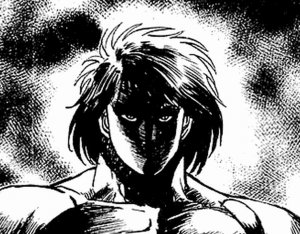How to Get Over Your Past Relationships? Easy: Make a Better One.
Dinner Mate is a slow-burn romantic TV show that doesn't use a lot of melodrama to build the chemistry between the two leads. It is a purely serendipitous tale of two professionals who find each other at the best time. From the early episodes it is abundantly clear that both Kim Hae Kyung, played by Song Seung Heon, and Woo Do Hee, played by Seo Ji Hye are quite unenthusiastic about romantic relationships. After some comedic situations and a little bit of coincidence to get the ball rolling, the backbone of the show's plot becomes, what I would call, "anonymous intimacy". The two main leads meet for dinner as a means to vent about their personal lives without deep feelings, without the potential anxiety of being boyfriend-girlfriend and without verbal confrontations. They do this by agreeing to eat together when they're hungry and by carefully talking about their lives but never giving their names or professions to each other. If we take the show's premise at face value, this is obviously a way for the show to set-up a lot of complicated social situations, combined with 'secret relationship' antics.
I think, however, we need to take a step back and recognise that Dinner Mate isn't a plot-heavy show. Dinner Mate is very much an emotional and psychological journey where the back-and-forth events at Do Hee's social media job and Hae Kyung's clinic aren't that important. What becomes important over the course of the show are the particularities of how the two leads overcome their relationship woes.
Both leads are coming off of bad break-ups: Do Hee has been ghosted, Hae Kyung viciously dumped. Without spoiling, neither has entirely given up at the start of the series, but they are slightly weary of relationships and the drama that seems to follow their romantic lives around. What is great about Dinner Mate's story is the suggestion that this weariness is exactly the mindset which creates a strong relationship. The rules the "dinner mates" create ensure an ongoing, neutral social outing where they can eat with each other without judgement; this results in them respecting each other's privacy. They resist the temptation to pry into each other's lives and are able to spend time with someone else without emotional pressures.
This respect for the privacy and the emotional boundaries of strangers is the most important takeaway from the scenario of this show.
It might sound like I'm not describing a romantic television show, but that is obviously not the case. It's readily apparent from all the various music cues and slow-motion shots of the actors looking into each other's direction (calmly and with slight smiles on their faces) that the two leads are inevitably going to 'catch feelings' for each other. The dinner rules are meant to fail, which makes the show pretty funny at times. It's almost a recurring meme at the end of every second hour of this show for Seo Ji Hye and Song Seung Heon to be looking at each other across a street (for what seems like an eternity) while soft modern R&B plays in the background. While I did eye-roll during one or two of these slow-mo stares and maybe found them a little tiresome once or twice, I didn't mind Dinner Mate's straight-forward romantic tale. I vastly prefer a romantic story where the plot is driven by warm, non-verbal communication combined with a positive outlook for the relationship. The alternative romantic story (the one most television shows rely on) is a plot driven by betrayal, violence or a type of doomed 'forced contact' between the two leads. For example: boy meets girl after a disaster-like event, or boy meets girl but their families are enemies, or boy meets girl but one of them is a ghost, etc.
You can build a romantic story using unfortunate events that eventually forces the two leads to bond together in order to overcome the negativity of their situation, but this approach is only one particular part of how romance develops. This brings me to the two 'villains', or ex-partners, of the lead characters: Jin Noh Eul and Jung Jae Hyuk. Obviously I want you to watch the show for yourself so I'm not going to spoil much, but through these two characters Dinner Mate explores the transition out of chasing romance and into building romance. It's easy to argue that the two villains, in their persistent chase for romance, eventually start chasing romantic trauma instead. They don't evolve their mindset into their new circumstances whatsoever. Needless to say, the fact that some of the main and supporting characters in this show are psychologists shouldn't be lost on you. It bears repeating: you should not be expecting a lot of interesting twists and turns in this story; nor are the plot twists and 'shock' events in this show at all surprising.
Dinner Mate very much wants show how we can BUILD FROM romantic trauma rather than LAZILY ACCEPT romantic trauma. Yeah, there's some cheesy melodramatic scenarios near the end of the show, but make no mistake: Dinner Mate has a powerful message about the importance of mediated intimacy in romantic relationships rather than an accepted familiarity. We shouldn't take our loved ones for granted.
I think, however, we need to take a step back and recognise that Dinner Mate isn't a plot-heavy show. Dinner Mate is very much an emotional and psychological journey where the back-and-forth events at Do Hee's social media job and Hae Kyung's clinic aren't that important. What becomes important over the course of the show are the particularities of how the two leads overcome their relationship woes.
Both leads are coming off of bad break-ups: Do Hee has been ghosted, Hae Kyung viciously dumped. Without spoiling, neither has entirely given up at the start of the series, but they are slightly weary of relationships and the drama that seems to follow their romantic lives around. What is great about Dinner Mate's story is the suggestion that this weariness is exactly the mindset which creates a strong relationship. The rules the "dinner mates" create ensure an ongoing, neutral social outing where they can eat with each other without judgement; this results in them respecting each other's privacy. They resist the temptation to pry into each other's lives and are able to spend time with someone else without emotional pressures.
This respect for the privacy and the emotional boundaries of strangers is the most important takeaway from the scenario of this show.
It might sound like I'm not describing a romantic television show, but that is obviously not the case. It's readily apparent from all the various music cues and slow-motion shots of the actors looking into each other's direction (calmly and with slight smiles on their faces) that the two leads are inevitably going to 'catch feelings' for each other. The dinner rules are meant to fail, which makes the show pretty funny at times. It's almost a recurring meme at the end of every second hour of this show for Seo Ji Hye and Song Seung Heon to be looking at each other across a street (for what seems like an eternity) while soft modern R&B plays in the background. While I did eye-roll during one or two of these slow-mo stares and maybe found them a little tiresome once or twice, I didn't mind Dinner Mate's straight-forward romantic tale. I vastly prefer a romantic story where the plot is driven by warm, non-verbal communication combined with a positive outlook for the relationship. The alternative romantic story (the one most television shows rely on) is a plot driven by betrayal, violence or a type of doomed 'forced contact' between the two leads. For example: boy meets girl after a disaster-like event, or boy meets girl but their families are enemies, or boy meets girl but one of them is a ghost, etc.
You can build a romantic story using unfortunate events that eventually forces the two leads to bond together in order to overcome the negativity of their situation, but this approach is only one particular part of how romance develops. This brings me to the two 'villains', or ex-partners, of the lead characters: Jin Noh Eul and Jung Jae Hyuk. Obviously I want you to watch the show for yourself so I'm not going to spoil much, but through these two characters Dinner Mate explores the transition out of chasing romance and into building romance. It's easy to argue that the two villains, in their persistent chase for romance, eventually start chasing romantic trauma instead. They don't evolve their mindset into their new circumstances whatsoever. Needless to say, the fact that some of the main and supporting characters in this show are psychologists shouldn't be lost on you. It bears repeating: you should not be expecting a lot of interesting twists and turns in this story; nor are the plot twists and 'shock' events in this show at all surprising.
Dinner Mate very much wants show how we can BUILD FROM romantic trauma rather than LAZILY ACCEPT romantic trauma. Yeah, there's some cheesy melodramatic scenarios near the end of the show, but make no mistake: Dinner Mate has a powerful message about the importance of mediated intimacy in romantic relationships rather than an accepted familiarity. We shouldn't take our loved ones for granted.
Considerați utilă această recenzie?





